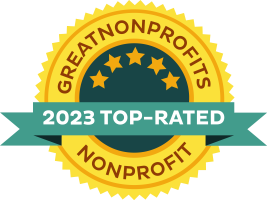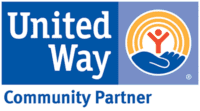
One afternoon while picking up my two girls from their afterschool program, I overheard a conversation between a father and daughter that made me stop and think. The daughter, who looked to be the same age as my oldest, ran up and gave her dad a big smiling hug as he walked in the door. I didn’t recognize the family, so I assumed she must have been a drop-in for the afternoon.

I heard the girl say, “This was SO much fun. Why can’t I come here more often?” The father responded, “You are lucky enough to have a stay-at-home-mom, so you don’t need a babysitter after school.”
For a second, as I watched my girls grab their backpacks and books, I felt a twinge of guilt. For being a working mom. For sending my children to an afterschool program. For not being able to pick them up from school and spend time with them.
But then my oldest ran up to me and said, “You’ll never guess what I learned today!” She rattled off some pretty interesting information about ecosystems and I said something about her school teacher, Ms. Johnson. My daughter immediately corrected me and said, “No mom, I learned that here!”
And then I remembered.
I don’t just send my kids to afterschool programming because I’m a working mom and need a “babysitter.” I send them because the experiences and opportunities they encounter in their after school program enriches their lives in so many different ways, just like any other extracurricular activity I sign them up for should.
When my kids are in afterschool care, they have an opportunity to establish a close relationship with another adult—someone who is invested in their growth and development, who genuinely cares about them, who will listen, laugh and support them. Even though my children have two parents that love them and a teacher who inspires them, I’m under the firm belief that a child can never have too many adults advocating for their well-being.
They are also exposed to a diverse group of kids—those who they might not otherwise mingle with during the school day. This offers them a different perspective, a chance to learn empathy and practice getting along with others that are different than them—not to mention the chance to build more friendships.
Most importantly, when my kids are at after school, they are having fun while using their brains and muscles. They do science experiments, engage in teambuilding challenges, research topics that are interesting to them, learn new games and sports, make art and craft projects, cook, act, sing and explore outside. They are learning new skills and knowledge, but they are having so much fun doing it, that they don’t even mind!
Now, how can I possibly feel guilty about that?
At Camp Fire First Texas, our after school programs are uniquely tailored to meet the needs of each campus and community within a framework that focuses on social-emotional development, skill-building for life success, service learning and a love a of the environment. Because of Camp Fire After School, youth will:
- Have a greater appreciation and respect for nature
- Be contributors and leaders in their community
- Apply a growth mindset to their future goals and ambitions
- Have a sense of purpose, are on the path to reaching their full potential, and thus, are positioned for successful adulthood
So whether you’re a stay-at-home parent or a working parent, quality afterschool programming can make a lasting positive impact on your child’s life.
 Nikki Roe Cropp is the Director of Program Quality for Camp Fire First Texas. Nikki brings more than fifteen years of nonprofit experience to the council, including her work as an overnight camp counselor in college. She holds a Bachelor of Arts in psychology from Kansas State University and an Urban Nonprofit Management Graduate Certificate from the University of Texas at
Nikki Roe Cropp is the Director of Program Quality for Camp Fire First Texas. Nikki brings more than fifteen years of nonprofit experience to the council, including her work as an overnight camp counselor in college. She holds a Bachelor of Arts in psychology from Kansas State University and an Urban Nonprofit Management Graduate Certificate from the University of Texas at






